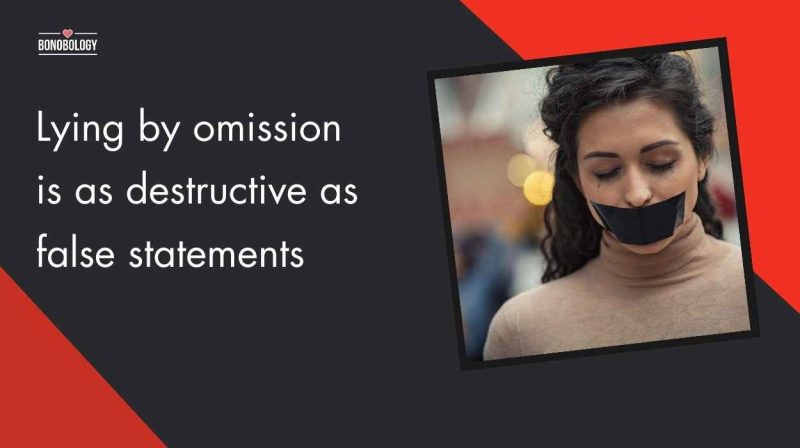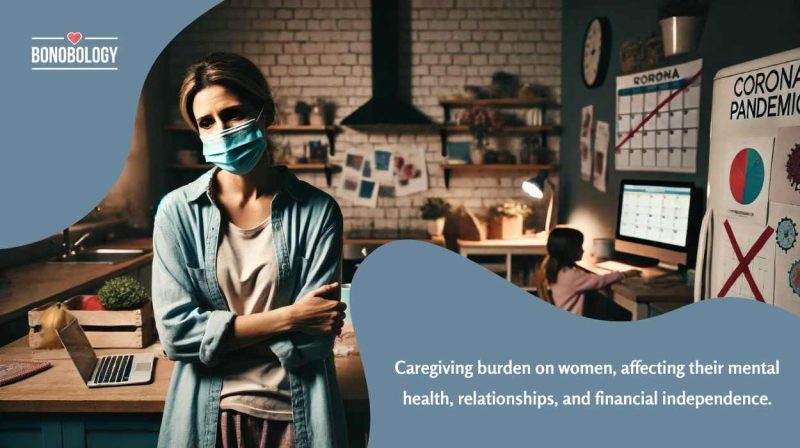Giving someone the silent treatment in a relationship has its negative effects that can put a serious strain on a couple’s dynamics. In some cases, emotional abuse stems from the silent treatment, and things only spiral from there.
No marriage or relationship can work without proper communication. That’s why one of the most common advice to maintain a healthy relationship is that you shouldn’t go to bed angry at each other, and must try to resolve your differences or fights as early as possible.
Silent Treatment In A Relationship: Is it Emotional And Mental Abuse?
Table of Contents
I first encountered “silent treatment” when a client in her 40s simply broke down in a session and said she “could not take it anymore” and was seriously contemplating divorce. To the outside world, it looked like a normal, perfect marriage.
An urban, well-educated couple, both doing professionally well, with a beautiful home, kids doing well in school, etc. To anyone outside, their marriage looked normal with no issues. There was no physical or verbal abuse in the marriage.
But what the world sees isn’t really what happens. She was drowning in the relationship.
How To Deal With Silent Treatment?
The effects of silent treatment can amount to psychological abuse and trauma. There is no better way to deal with it than by talking to a professional and seeking guidance from people who have gone through something similar.
In this case, for instance, the couple put on a show of true love and affection, but in reality, he was traumatizing her, and she was struggling to get through every single day.
Related Reading: How To Respond To The Silent Treatment – Effective Ways To Handle It
No one understood her predicament
As a 24-year-old counselor, fresh out of grad school, this looked like a strange and drastic reason for my client to leave a perfectly decent marriage. I simply could not fathom why my client would want to leave a “healthy” marriage.
As the sessions progressed, one could see the trauma she faced due to not knowing how to deal with silent treatment in marriage and how damaging it was to the very fabric of a relationship. My client had reached a stage where she was crying and feeling stressed.
Her daily non-verbal interactions with her spouse were taking a toll on her and she felt that she could not stay in the same house with her spouse anymore. According to my client, she felt like a trapped hostage, as no one, even her family and friends, could understand why it was such a big issue for her.
Why it is important to talk in a relationship
Communication forms the basis for any stable marriage. Lack of communication in a marriage leads to misunderstandings, misconceptions and negative thinking on both ends.
The spouse receiving the silent treatment starts to put their own interpretation to the situation, tries cajoling, pleading, even attempting silent treatment to teach their spouse a lesson. This “silent conflict” boils down to a power and control situation, and which partner will “bow down” first and apologize and normalize the situation.
It is like a parent and child or employer/employee relationship, where the parent/boss expects an apology for any perceived wrong by the child/employee. It’s a power play with no winners.

Silence is a weapon in a power game
The silent treatment is the most common weapon of power struggle in a relationship used by partners against each other and least understood. It becomes a tool to “control” and “punish” the other partner. The silent treatment is a form of emotional and mental abuse.
It strips a person of their self-esteem and creates guilt and feelings of unworthiness in them. Sometimes couples go through days and even weeks of silent treatment.
The behavior can occur after a fight or suddenly with no apparent reason, leaving the recipient confused. And it can end just as abruptly as it started. The effects of silent treatment are long-lasting in a relationship, and once it bruises the bond, the couple just continues to wither.
Related reading: No infidelity, no domestic abuse and yet am lonely in my marriage
A difficult form of interaction
My client revealed that her spouse would go days without speaking, and then would suddenly start talking normally, pretending as if nothing had happened. Or she would talk to her spouse and he would refuse to reply or acknowledge her presence.
On the bad days, she said she felt emotionally abused when he would bring up her insecurities and blame her parents for raising her the way they did. He would comment on her sexual preferences and begin ridiculing them out loud.
To avoid rocking the boat, my client would choose to go with the flow. She never called him out on his behavior out of fear that she might be subjected to the silent treatment again. However, 15 years of this pattern had taken a toll on my client. With the husband refusing to see it as a “problem”, it eventually led them to separate, as she just couldn’t put up with this behavior any longer.
It is normal for couples to be angry or even spitting mad at each other and not talk for several hours. However, dragging the silent treatment for days/weeks on end is considered a form of emotional and mental abuse.
This form of abuse tears into the marriage fabric; couples drift apart from each other and the “emotional connection” in a relationship gets hampered. Most times, going silent and hiding things from each becomes the norm, and soon your partner is no longer your go-to person.
The best option for couples is to agree to disagree. Take a few hours off from each other if required, but resolve any issue by the very next day or within the week. Don’t let your ego prolong the silent phase and ruin your marriage.
Maintain the flow of communication

Avoid silent treatment, as it is abusive in any relationship and creates tension in the marriage and family. The communication flow needs to be maintained at all costs to keep the relationship relevant and thriving.
If you happen to be the recipient of the silent treatment, address the issue and talk to your partner about how it affects you and makes you feel as a person and how it impacts your relationship. If your partner does not acknowledge it as an issue, then it is best to seek marriage counseling or individual counseling.
But first acknowledge to yourself, that it is psychological abuse and you are not responsible for your partner’s behavior. You deserve respect in a healthy relationship.
There is absolutely no excuse for abuse in a relationship, be it mental or physical. Even though it may seem like a difficult choice, sometimes leaving the person will do you better than staying on in the relationship and trying to get through every day in pain.
Sometimes it’s okay to put yourself first, especially in relationships where the fundamental concept of communication is beyond repair.
FAQs
After a fight or disagreement, the couple lets their ego get in the way, and they stop talking. None of them want to confront the other, so they let the situation get from bad to worse.
Yes, it can be. By ignoring someone, they are losing out on somebody to talk to, and they begin to feel like they can’t share things with you because of how you reacted and handled the situation/fight by just stopping all communication.
Sometimes people do use the silent treatment to manipulate others into doing something they want or need. They can also make you feel guilty for not complying with their request or threat.
Your contribution does not constitute a charitable donation. It will allow Bonobology to continue bringing you new and up-to-date information in our pursuit of helping anyone in the world to learn how to do anything.























Featured
Lying By Omission And Its Consequences On Relationships
I Don’t Trust My Boyfriend – 9 Probable Reasons And 6 Helpful Tips
What Is Breadcrumbing In Dating? Signs And How To Respond To It
The Role Of Self-Esteem In Relationships – Take This Test To Assess Yours Today!
Do Long-Distance Relationships Work?
How To Deal With Someone Who Blames You For Everything — 21 Sensible Ways
Does The No Contact Rule After Break Up Work? Expert Responds
Stereotyping Men: Why It’s Time To Think Outside The ‘Man Box’
Why Is Being Single Looked Down Upon? Decoding The Psychology Behind Judgment
Broken Heart Syndrome: When Your Heart Breaks, Quite Literally
15 Tips To Keep A Relationship Strong And Healthy
Attachment Styles Psychology: How You Were Raised Affects Relationships
The Burden of Care, an Often Overlooked Impact of the Pandemic on Women
Marriage Counseling – 15 Goals That Should Be Addressed Says Therapist
Post-Wedding Depression: I Was So Depressed I Tried To Commit Suicide
9 Proven Benefits Of Counseling – Don’t Suffer In Silence
Giving Too Much In A Relationship? How Much To Give Of Yourself
Dating As A Single Mom – 9 Tips
Having a Relationship With An Introvert? 7 Tips For Dating An Introvert
How To Watch Out For The Relationship Red Flags – Expert Tells You